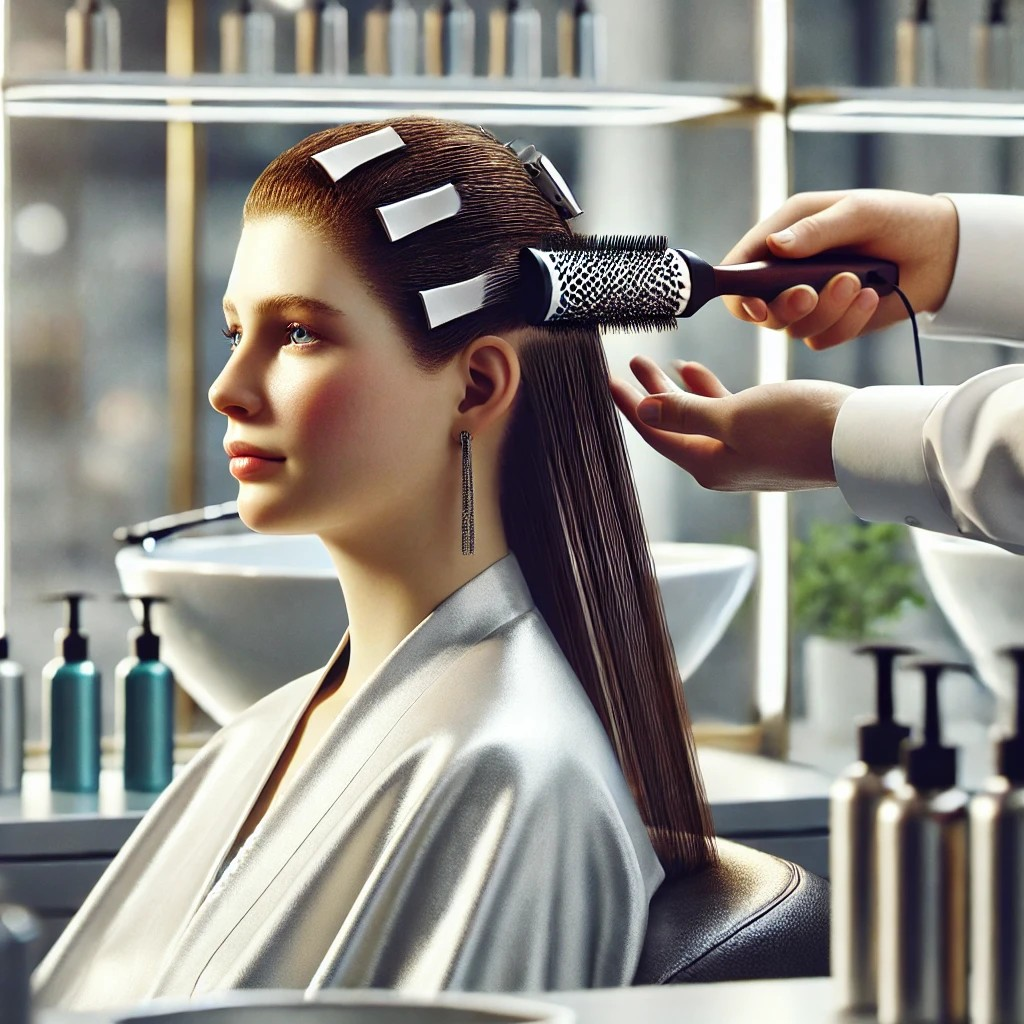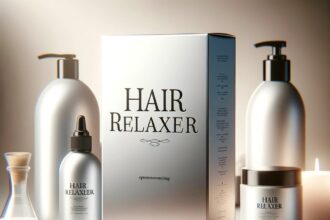The use of chemical hair relaxers, once seen as a routine beauty treatment, has now become the center of one of the largest product liability lawsuits in recent years. Research studies have linked chemical hair relaxers to an increased risk of breast cancer. Additionally, findings indicate that a significant percentage of women who used these products were more likely to have developed uterine cancer by age 70, particularly with frequent usage. Women across the United States allege that these products have caused severe health issues, including uterine cancer, ovarian cancer, and other significant medical conditions. As of now, nearly 10,000 hair relaxer cancer lawsuits have been filed in federal and state courts, reflecting a growing concern about the safety of widely used brands such as Dark & Lovely, Just for Me, and Optimum.
The lawsuits aim to hold major manufacturers accountable for failing to warn consumers about the risks associated with prolonged exposure to harmful chemicals in their products. This legal battle is about more than individual claims; it represents a broader reckoning with the beauty industry’s responsibility to ensure consumer safety. Plaintiffs nationwide are turning to skilled legal advocates to navigate this complex and high-stakes litigation process.
Hair Relaxer Lawsuit Overview
The hair relaxer lawsuit is a significant mass tort litigation involving thousands of plaintiffs who allege that the use of chemical hair relaxers has led to severe health issues, including uterine cancer, ovarian cancer, and endometrial cancer. Hair relaxer attorneys play a crucial role in guiding clients through the legal process, including filing lawsuits for cancer-related claims, and making legal assistance accessible without upfront costs. These lawsuits claim that major manufacturers like L’Oreal and Revlon failed to adequately warn consumers about the potential health risks associated with their products. The plaintiffs argue that chemicals such as phthalates and formaldehyde, commonly found in these hair relaxers, act as endocrine disruptors, causing hormonal imbalances that increase the risk of developing cancer. This litigation underscores the critical need for transparency and consumer safety in the beauty industry.
Hair relaxer cancer lawsuit cases are becoming increasingly common as more individuals come forward with claims. The plaintiffs argue that chemicals such as phthalates and formaldehyde, commonly found in these hair relaxers, act as endocrine disruptors, causing hormonal imbalances that increase the risk of developing cancer. This litigation underscores the critical need for transparency and consumer safety in the beauty industry.
What Is The Hair Relaxer Lawsuit about?
The hair relaxer lawsuit is a significant product liability claim targeting the manufacturers of hair relaxer products. Plaintiffs allege that the chemicals in these products, such as phthalates and formaldehyde, are linked to severe health issues, including various forms of cancer. The core of the lawsuit is the accusation that these manufacturers failed to provide adequate warnings about the potential risks, despite being aware of the dangers posed by these chemicals. As a result, many individuals who have developed cancer or other health issues after using hair relaxer products are seeking compensation for their suffering. This legal action underscores the critical need for transparency and consumer safety in the beauty industry.
The Health Risks Of Chemical Hair Straighteners At The Core Of The Litigation
At the heart of the lawsuits are claims that chemical hair straighteners contain dangerous chemicals linked to serious illnesses. Women who frequently use these products are at a higher risk to develop uterine cancer. Studies have indicated that ingredients such as formaldehyde and phthalates, commonly found in relaxers, may disrupt hormonal balance and increase the risk of cancer, including endometrial cancers. The National Institutes of Health (NIH) published research in 2022 connecting frequent use of chemical relaxers to a heightened risk of uterine cancer, particularly for women who used these products over many years.
This scientific evidence has been a turning point in the litigation, strengthening claims that manufacturers prioritized profit over consumer health. Most plaintiffs are women of color, who have historically been targeted by aggressive marketing for these products. For decades, these consumers were led to believe that relaxers were both safe and essential for achieving straight, manageable hair—a narrative now being thoroughly challenged in court. Uterine cancers are a significant focus in the upcoming legal proceedings, alongside other types such as ovarian and endometrial cancers.
The personal impact of these health risks cannot be understated. Beyond the physical toll of cancer and other illnesses, many plaintiffs have faced emotional and financial hardships, including costly medical treatments. For those pursuing legal action, holding manufacturers accountable is as much about seeking justice as it is about ensuring that no other consumers suffer the same fate.
What Is Uterine Cancer?
Uterine cancer, also known as endometrial cancer, is a type of cancer that originates in the uterus. It is the fourth most common cancer among women in the United States, with approximately 65,000 new cases diagnosed annually. Notably, uterine cancer disproportionately affects Black women, who are twice as likely to develop the disease compared to white women. Symptoms of uterine cancer can include abnormal vaginal bleeding, pelvic pain, and unexplained weight loss. If not diagnosed and treated promptly, uterine cancer can metastasize to other parts of the body, posing a significant threat to a woman’s health and life.
What Is Ovarian Cancer?
Ovarian cancer is a malignancy that affects the ovaries, the female reproductive organs responsible for producing eggs. Although it is relatively rare, with about 20,000 new cases each year in the United States, ovarian cancer is particularly dangerous due to its subtle early symptoms and rapid progression. Common symptoms include pelvic pain, bloating, and a feeling of fullness after eating small amounts. Because it is often detected at an advanced stage, ovarian cancer can be challenging to treat and may be fatal if not addressed promptly.
The Legal Process: A Complex Hair Relaxer Litigation
The overwhelming number of claims has prompted the creation of a multidistrict litigation (MDL) to streamline pretrial proceedings. The ongoing hair relaxer class action lawsuits have been consolidated into this MDL. An MDL consolidates similar cases to address shared legal and factual questions, improving efficiency and consistency across thousands of lawsuits. In the hair relaxer MDL, Judge Mary Rowland is overseeing these proceedings in the U.S. District Court for the Northern District of Illinois.
Discovery is well underway, with both sides exchanging critical evidence, including internal company documents, scientific studies, and expert testimonies. The court has established a clear timeline for this process, with written discovery set to conclude in February 2025 and oral depositions by September 2025. These steps will be pivotal in determining the strength of the plaintiffs’ claims and the manufacturers’ defenses.
The bellwether trial process is also on the horizon, with the first trial scheduled for November 2025. These initial cases are selected to represent broader issues present in the MDL, providing a preview of how juries may respond to evidence and arguments. The outcomes of these trials often influence settlement negotiations, as they can set the tone for the resolution of remaining cases.
What Is The timeline For The Hair Relaxer Lawsuit?
The hair relaxer lawsuit is currently in the discovery phase, with no settlement offers made to plaintiffs at this time. The lawsuit was initiated in February 2023, and it is anticipated to take several years to reach a resolution. The timeline for the lawsuit is as follows:
- February 2023: The lawsuit is filed against hair relaxer manufacturers.
- 2023-2024: The discovery phase begins, during which both sides gather evidence and conduct depositions.
- 2024-2025: The lawsuit is expected to proceed to trial, although a settlement may be reached beforehand.
- 2025 and beyond: The lawsuit is anticipated to be resolved, either through a verdict or a settlement in favor of the plaintiffs.
This timeline highlights the lengthy and complex nature of the legal process, emphasizing the importance of thorough preparation and expert legal representation for those affected by the harmful effects of hair relaxer products.
Broader Implications And Consumer Awareness
The hair relaxer lawsuits have sparked important conversations about consumer protection and corporate accountability. Many experts argue that these cases highlight systemic issues in how beauty products are regulated in the United States. Unlike pharmaceuticals, cosmetics are subject to less rigorous safety testing, leaving consumers vulnerable to potential harm. This litigation underscores the urgent need for stronger oversight and transparency in the beauty industry. Additionally, health risks associated with chemical hair straighteners, including links to uterine and ovarian cancers, have been highlighted by studies and lawsuits, emphasizing the alarming statistics that connect these products to serious health conditions.
Another critical aspect is the role of targeted advertising in shaping consumer behavior. The beauty industry has historically marketed hair relaxers as safe and indispensable for achieving societal beauty standards, particularly to women of color. Plaintiffs argue that this messaging not only perpetuated harmful stereotypes but also obscured the real risks of using these products.
As awareness grows, more consumers are rethinking their beauty routines and demanding safer alternatives. Advocacy groups have also stepped up, calling for stricter regulations and urging manufacturers to prioritize the well-being of their customers. The outcome of this litigation could lead to significant changes in industry practices, setting a precedent for greater accountability and potentially resulting in hair relaxer settlements that provide financial compensation for affected consumers.
Hair Relaxer Manufacturers
Several prominent hair relaxer manufacturers are at the center of these lawsuits, including industry giants like L’Oreal, Revlon, and SoftSheen-Carson. These companies are accused of prioritizing profits over the safety of their consumers by failing to conduct sufficient testing on their chemical hair relaxer products. Plaintiffs claim that these manufacturers were aware, or should have been aware, of the potential health risks posed by their products but chose not to inform the public. This alleged negligence has led to widespread health issues among users, prompting a wave of legal actions aimed at holding these companies accountable. Discussions around hair relaxer settlement values and processes are ongoing as part of these legal battles.
Affording A Lawsuit
For many individuals harmed by chemical hair relaxers, finding experienced hair relaxer lawyers can be crucial in navigating the legal process and affording a lawsuit. However, pursuing justice does not have to come with a financial burden. Many law firms, including ours, offer free consultations and case evaluations to help you understand your legal options. Additionally, we work on a contingency fee basis, meaning we only get paid if we successfully recover compensation for you. This approach eliminates the financial risk of pursuing a lawsuit, allowing you to focus on your health and recovery while we handle the legal complexities. If you believe you have been affected by chemical hair relaxers, don’t hesitate to seek the justice and compensation you deserve.
How Can Mass Tort America Help?
If you or a loved one have experienced health complications potentially linked to hair relaxer use, Mass Tort America is here to help. It is crucial to contact hair relaxer lawyers promptly to understand your eligibility for lawsuits. With our expertise in product liability cases, our experienced hair relaxer lawyer can guide you through every step of the legal process, ensuring your voice is heard and your rights are protected. Our team is dedicated to fighting for fair compensation to cover medical bills, lost wages, and other damages you may have suffered as a result of using these products.
Mass Tort America is proud to assist clients nationwide. Our Concierge Team is available to coordinate every aspect of your case, from gathering evidence to connecting you with trusted medical professionals. Don’t face this fight alone—reach out to us today. Call 800-356-4338 or visit our contact form at https://masstortamerica.com/contact/ to take the first step toward justice.


















